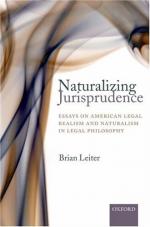|
This section contains 1,698 words (approx. 6 pages at 300 words per page) |

|
Beginning about 1920, an iconoclastic group of American legal writers, led by K. N. Llewellyn, Walter Wheeler Cook, Jerome Frank, Herman Oliphant, and Underhill Moore, denounced the established legal tradition as formalistic and conservative. That tradition, they charged, wrongly saw the law as a complete and autonomous system of logically consistent principles, concepts, and rules. To apply the law was to unfold the ineluctable implications of those rules. The judge's techniques were socially neutral, his or her private views irrelevant; judging was more like finding than making, a matter of necessity rather than choice. The realists, by contrast, saw legal certainty as rarely attainable and perhaps even undesirable in a changing society. In their view the paramount concern of the law was not logical consistency but socially desirable consequences. Law was an instrument of government, and jurisprudence should focus less on legal concepts than on social facts...
|
This section contains 1,698 words (approx. 6 pages at 300 words per page) |

|


